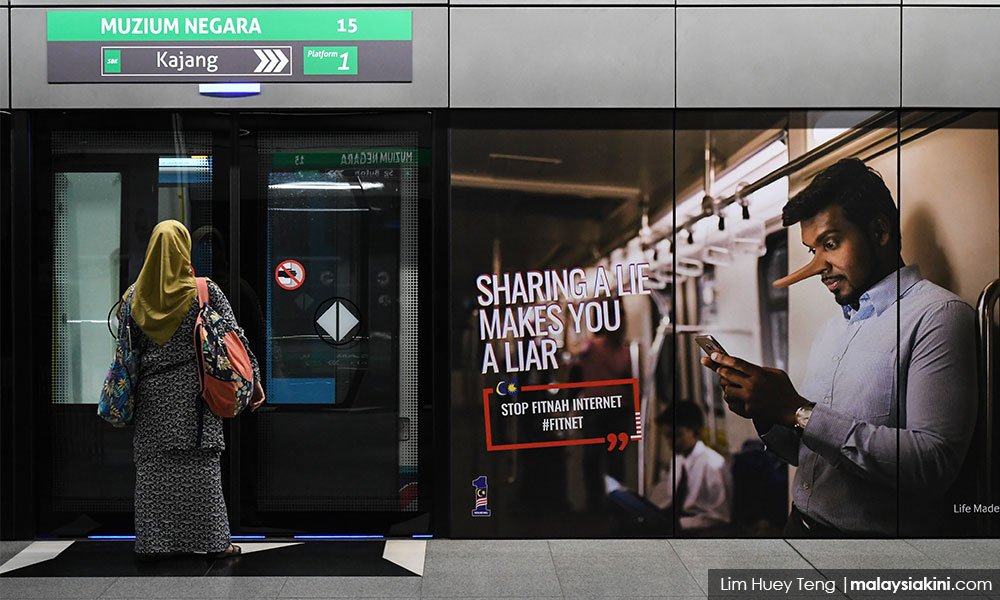
The term is innocent until proven guilty, but the same can’t be said for the Anti- Fake News Act that was recently gazetted despite strong opposition from the public, as they deemed the act was just another repressive state apparatus to curb the freedom of speech.
That aside, I think it is also important for Malaysians to see this act objectively to fully gauge its pros and cons. If nothing at all, the initiative by the government to enact laws that tackles new forms of issues in the cyber age should be applauded.
Fake news can certainly go out of control if not properly regulated. The recent fake news about Tunku Ismail Sultan Ibrahim that caused thousands to swarm Econsave at Pontian is a testament to its influence.
The worst of all in this context is that the original poster of the fake news could pretty much get away with little to no consequence before this law was enacted.
With that said, this also brings about a lot of questions. As of now, the act defines ‘fake news’ as any wholly or partly false news, information, data and reports, whether in the form of features, visuals or audio recordings or in any other form capable of suggesting words or ideas.
But what happens when the fine line between fake and real news is blurred?
For example, parodies. Given that parodies are often satirical in nature, would it be directly considered as fake news or rather it will only become fake news when the right person gets offended? A good place to start looking is at Zunar’s cartoons that often comes under scrutiny by the government for allegedly being seditious in nature.
That brings on the next question, who gets to determine what is fake and real? Currently, the government has determined that a ‘neutral and just’ party, namely the court, gets to make the final call.
But can we confidently say that our courts are fully neutral after 1988 judicial crisis and the sudden termination of Abdul Gani Patail as attorney- general over 1MDB?
As a whole, it is not wrong for this law to exist, but rather it is how the government uses it that makes a difference. If applied rightly, it can be a very good deterrent to those irresponsible parties that wish to spread fake news for personal gain.
But if it is wrongly used, it will be no different from the likes of the Sedition Act 1960 and Communications and Multimedia Act 1998 that turns the government into the judge, jury and executioner, silencing their opponents once and for all.
With Ops Lalang in mind as well as the sudden rush for this Anti-Fake News Act to be gazetted in preparation for the general elections, it is no wonder that Malaysians have already deemed this law guilty. - Mkini


No comments:
Post a Comment
Note: Only a member of this blog may post a comment.